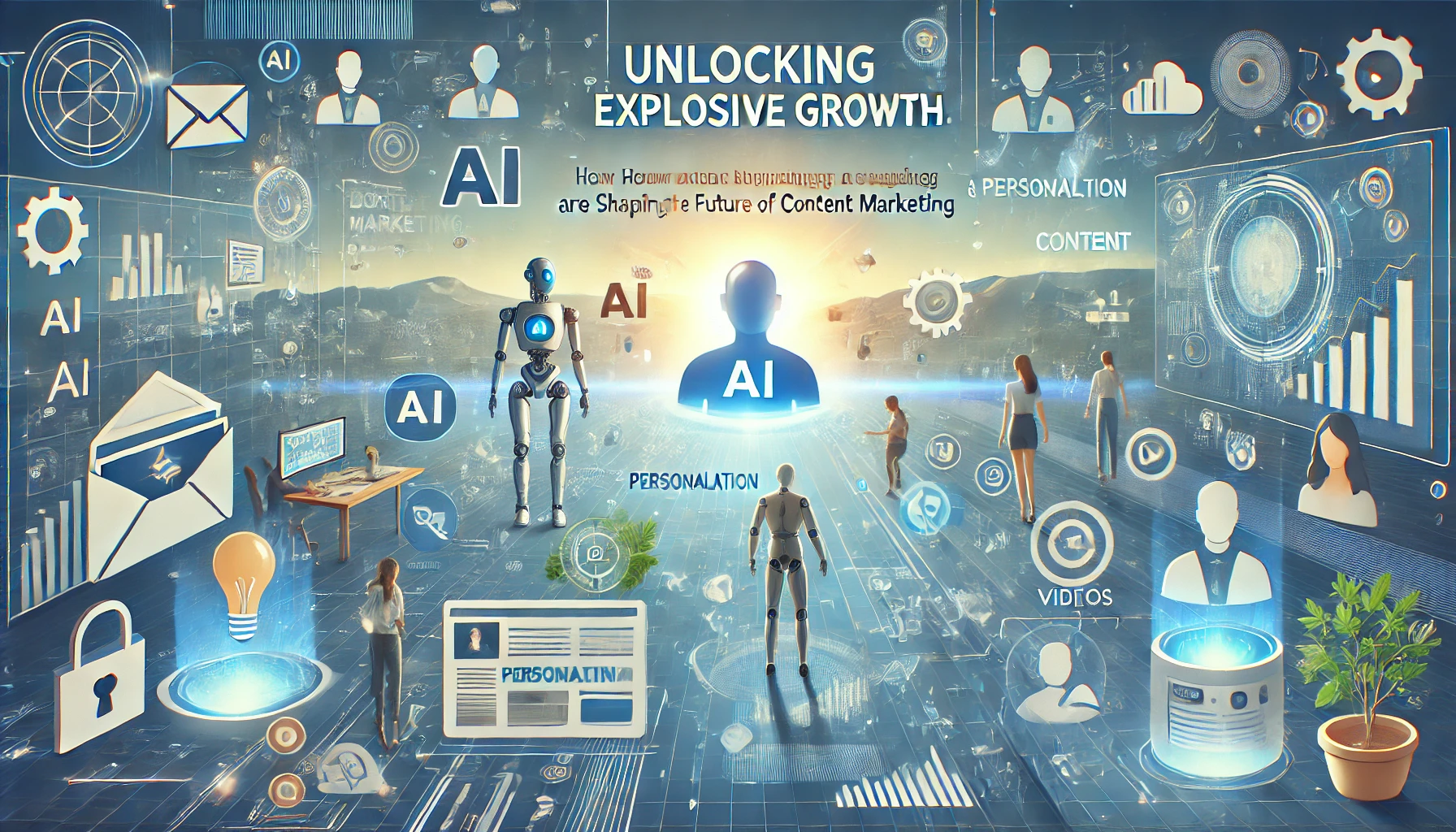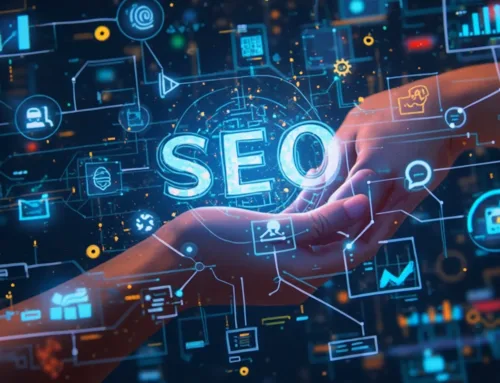Introduction
In today’s rapidly evolving digital landscape, brands striving for organic growth face a pivotal question: Will the future of content marketing be dominated by hyper-personalization through AI, or will new engagement tactics redefine how we connect with audiences? As advanced AI models and lifelike virtual avatars emerge, we’re entering an era where audiences might prefer direct interactions with AI for its depth and immediacy. This article explores both near-term and long-term strategies that brands can adopt to harness the power of AI-driven content marketing and stay ahead in the game.
The Rise of AI-Driven Personalization
Artificial Intelligence has made significant strides, offering unprecedented opportunities to deliver hyper-personalized content at scale. By analyzing vast datasets, AI enables brands to target audiences with pinpoint accuracy, catering to individual needs and preferences like never before. In an age where personalization is the key to cutting through the digital noise, AI’s ability to craft unique, tailored experiences is a game-changer.
But how can brands leverage these capabilities now and in the future? Let’s delve into actionable strategies that consider both technological potential and the human nuances that foster genuine connections.
Near-Term Growth Tactics (Next 18 Months)
1. Hyper-Personalized Content Using AI and Automation
AI empowers brands to segment audiences finely and deliver content that truly resonates. By adapting content based on user behavior, location, and browsing history, every interaction becomes more engaging and meaningful.
Imagine a customer visiting your website and immediately seeing content tailored to their past interactions and preferences. This level of personalization can significantly boost engagement and conversion rates.
2. AI-Driven SEO and Content Optimization
Advanced AI tools can revolutionize your SEO strategy. They analyze search intent, cluster related keywords, and create detailed content outlines, helping you build niche topic clusters. As search engines increasingly adopt AI-enhanced algorithms, staying ahead with AI-driven SEO is crucial.
By leveraging AI, you can ensure your content not only reaches your target audience but also stays relevant in a constantly changing search landscape.
3. Conversational and Interactive Content
AI chatbots and conversational interfaces transform passive content consumption into interactive experiences. Integrating quizzes, calculators, and chat-driven responses on your website or app provides immediate value to users, fostering trust and engagement.
These tools can answer customer queries in real-time, guide them through purchase decisions, and enhance overall user experience.
4. AI-Powered Video and Audio Production
Short-form videos are among the most engaging content formats today. AI-powered editing and generation tools make it easier than ever to create cost-effective, platform-optimized videos. Repurposing these across social media channels can significantly expand your reach.
With AI, even small brands can produce high-quality video content that rivals larger competitors.
5. Augmented Reality (AR) for Product Engagement
For industries like fashion, home goods, and automotive, AR-driven virtual try-ons bridge the gap between digital and physical experiences. Providing customers with immersive product previews deepens relationships and can accelerate the purchase decision.
AR experiences can reduce return rates and increase customer satisfaction by setting accurate expectations before purchase.
6. AI Avatars for Influencer-Like Engagement
Creating AI avatars as brand ambassadors or virtual influencers introduces a novel element to customer interactions. These digital personas can engage in direct conversations, mirroring the appeal of human influencers at a fraction of the cost.
AI avatars can be available 24/7, providing consistent and on-brand interactions with your audience.
Long-Term Growth Tactics (5 to 10 Years)
1. Personalized AI Assistants for Every Customer
Imagine providing each customer with a personalized AI assistant that acts as a virtual advisor. These assistants offer recommendations based on individual habits and preferences, enhancing user loyalty through seamless, ongoing engagement.
This could revolutionize customer service, offering personalized support and building stronger relationships.
2. Predictive Content and Real-Time Personalization
As predictive AI becomes more sophisticated, brands will be able to anticipate user needs and proactively deliver content, offers, or recommendations before they’re even requested.
Staying one step ahead of customer needs can significantly improve satisfaction and retention rates.
3. Immersive Content Ecosystems in Virtual Spaces
With the growth of the metaverse, brands can establish interactive virtual spaces. Users can engage with products in virtual storefronts, attend brand-hosted events, or explore educational hubs, creating deeper emotional connections.
These immersive experiences can set brands apart in a crowded market, offering unique value to customers.
4. AI-Enhanced Co-Creation with Consumers
AI-driven tools will enable consumers to participate in creating content, products, and designs. This co-creation fosters brand loyalty by involving customers directly in the development process.
Crowdsourced designs and personalized products can drive deeper engagement and differentiate your brand.
5. Transparent AI-Driven Ethical and Social Responsibility
AI can help brands deliver transparency in real time. By analyzing environmental impact data and optimizing ethical sourcing, brands can openly share these insights, building lasting trust with socially conscious consumers.
Transparency isn’t just ethical—it’s a competitive advantage in today’s market.
6. Integrated IoT and Wearable Tech
As wearable technology and the Internet of Things (IoT) become more prevalent, brands can become integral to daily routines. Providing real-time health data, personalized guidance, and interactive smart home devices allows brands to influence consumer behavior in real-world settings.
This integration can lead to unprecedented levels of customer engagement and brand loyalty.
7. Self-Learning Content that Evolves with User Input
Future AI will create adaptive content ecosystems that learn from real-time engagement data. This iterative approach ensures content remains fresh, relevant, and responsive to user expectations.
By continuously evolving, your content stays ahead of trends and maintains user interest over time.
Balancing AI with the Human Touch
While AI offers incredible opportunities for growth and efficiency, it’s essential to blend it strategically with human interaction. Authenticity, ethical transparency, and a unique brand voice are irreplaceable elements that resonate with customers.
Automation should enhance, not replace, the human elements that make your brand unique.
By balancing advanced technology with a clear brand purpose, you can scale your marketing efforts while deepening relationships with your customers.
Conclusion
The future of content marketing lies at the intersection of AI innovation and genuine human connection. Brands that leverage AI for personalization and engagement while maintaining authenticity will not only achieve organic growth but also build lasting relationships with their audiences.
Are you ready to embrace the future of content marketing? The time to start is now.




